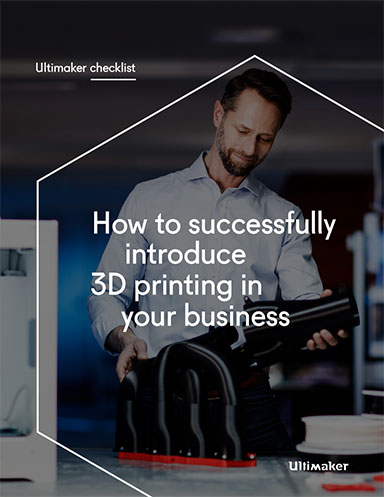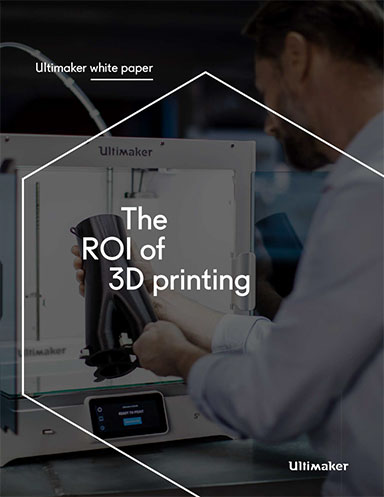Jabil Offers Comprehensive Materials Services for 3D Printing
Engineering services and new innovation center can accelerate materials development.

Pallets of Jabil Engineered Material in filament form are prepared for shipment to Jabil customers and distribution partners. Image courtesy Jabil.
Latest News
February 12, 2019
Developing and certifying new materials are ongoing challenges in the additive manufacturing (AM) space. The same material may perform differently depending on which 3D printing process is used, and different applications may require unique material properties.
In January, St. Petersburg, FL-based Jabil announced it was offering a new solution for creating and validating custom engineered materials for AM, and opened a new Materials Innovation Center in Minnesota to provide these 3D printing services in an end-to-end environment.
“Materials is the elephant in the room,” says John Dulchinos, vice president of digital manufacturing at Jabil. “From a cost standpoint and availability standpoint, it’s not getting adequately addressed. It has largely been solved by companies that are building proprietary ecosystems, which works for prototyping, but doesn’t scale in manufacturing. We are trying to create a solution that is built for manufacturing. That is why we opened the center and why we are engaged in this work.”
“It is critical that manufacturing companies not be dependent on specific suppliers.”
Jabil is a manufacturing services company with nearly 200,000 employees and 100 plants worldwide, and clients include the likes of Cisco, HP and Apple (the company is a major parts supplier for the iPhone).
In the additive space, Jabil has begun deploying 3D printing equipment (including HP Jet Fusion machines) around the world to create a 3D printing network for digital and distributed manufacturing. The company launched its additive manufacturing initiative four years ago to drive adoption of the technology in the company and in the manufacturing space in general. “We do some prototyping, but that’s not what we’re really interested in,” Dulchinos says.
Jabil now has more than 100 3D printers in place at its facilities for high-speed sintering, fused filament fabrication, polymer and metal laser sintering, along with processes. The company also uses 3D printing to manufacture more than 140 parts for HP’s printers.
Evaluate, Qualify and Validate 3D Printing Materials
The new Jabil Engineered Materials service will evaluate, qualify and validate materials alongside certified machines and processes as part of an integrated MPM solution that matches specific part performance with application requirements. According to the company, this approach ensures greater availability of unique materials while reducing time-to-market and cost to produce the highest quality parts.
3D printing presents a number of challenges when it comes to materials, because even materials with commonly known properties behave much differently after they have been exposed to various 3D printing processes. “You can’t just take a material that was created for molding, for example, and move it over to printing. You have to recreate each material with a new solution for the specific 3D printing process you will use,” Dulchinos says.

Jabil Additive Manufacturing experts and chemists can create custom materials that are certified for specific printers and processes. Image courtesy Jabil.
According to Dulchinos, Jabil’s new services and materials center can help address materials needs in this market that larger chemical and materials companies have tended to ignore, because the revenue potential is relatively small. “It’s still a small market, so larger, mature materials companies don’t consider it worth the investment,” Dulchinos says. “It’s going to be a number of years before the scale is going to attract the kind of investment that would make a lot of this sustainable. That’s why Jabil is stepping up. We don’t need to build a huge materials business, because we are enabling a much larger parts and manufacturing business. We can address the materials side, and have it make sense for us economically.”
Jabil sees an opportunity to address a gap in the market where there is a need for highly engineered materials with added reinforcement, conductive properties, lubrication, and other specialty materials that are targeted at specific applications. “That is where there will be a lot of innovation, and we can create those materials very quickly,” Dulchinos says.
End-to-End Materials Development Facility
The 50,000-square-foot Materials Innovation Center provides services including polymer formulations, compound development and ISO 9001 Quality Management System (QMS) certification. Additive manufacturing engineers, chemists, materials scientists and production experts consult with customers, leverage Jabil’s materials science innovations and oversee each step of making custom powders and filaments. A full range of services also are available, including compounding, extrusion and powder creation as well as system integration on standard, open source platforms supported by Fused Filament Fabrication (FFF), Selective Laser Sintering (SLS) and High-Speed Sintering (HSS) equipment.
Jabil broke ground on the center 15 months ago, and has already been working on materials development for a full nine months. “Customers can come in with their requirements, and work with our chemists and scientists to engineer a material that meets those requirements,” Dulchinos says. “We can then qualify and certify it, and produce it for you in one facility. Because we have a fully integrated solution, we can take weeks or months off of the traditional materials development cycle and accelerate time to market.”
“We believe in an open ecosystem,” Dulchinos adds. “It is critical that manufacturing companies not be dependent on specific suppliers. We may provide the production facility to make products from the new materials for these customers, or we may supply the materials to their designated parts manufacturers.”
Jabil says the facility will help accelerate customers' ability to move from prototyping to production with 3D printing.
“We can certify a material and qualify it for a process and the machine our customers are going to put it on,” Dulchinos says. “We can take advantage of our additive manufacturing network, and we have a software ecosystem that allows us to manage a distributed production network of 3D printers. We can build a complete solution for additive manufacturing.”
Subscribe to our FREE magazine, FREE email newsletters or both!
Latest News
About the Author
Brian Albright is the editorial director of Digital Engineering. Contact him at [email protected].
Follow DERelated Topics






